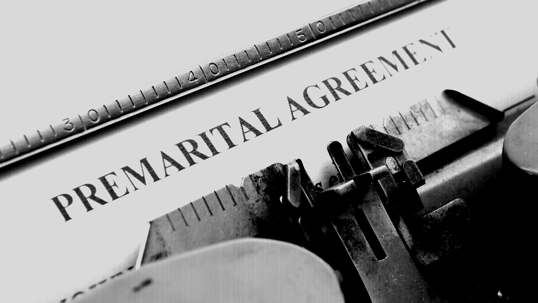
Massachusetts divorce lawyer James M. Lynch reviews the enforceability of prenuptial agreements in Massachusetts.
The answer is yes, as long as they are fair and reasonable to the parties at the time of the execution and fair at the time of the entry of the divorce judgment. When are prenuptial agreements not enforceable? A 2015 Massachusetts decision, Kelcourse vs. Kelcourse, provides a useful example of when a prenup is not enforceable.
The parties were married in the summer of 1991 when the husband was in his forties and owned his own marina business, and the wife was in her mid-twenties, a homemaker, and pregnant with their second child. Prior to the marriage, Mr. Kelcourse told his bride-to-be that he wanted a prenuptial agreement to protect his current assets: his home and his business. The agreement waived both parties’ interests in the other’s property owned prior to the marriage. The wife had no assets. The agreement also stated that if the parties purchased a principal residence during the course of the marriage, it would be the wife’s separate property.
Just before the parties married, they moved out of the home that the husband owned to a rental property in Amesbury. After fifteen years, their landlord sold the rental property to the Kelcourses. Prior to the closing, they hired an inspector who stated the house was in dire need of up to $100,000 in repairs. The husband told his wife that he would pay for these repairs and, anticipating these repairs, the wife agreed. The property was purchased in 2006 at a discounted price of $320,000.
In 2010, the parties separated after almost 20 years of marriage. At the time, no repairs had been made to the Amesbury house and the husband’s private home he had owned before the marriage was valued at $1.7 million. By December of 2011, an estimated $300,000 worth of repairs was needed on the Amesbury property, which by then was rodent infested and had boarded up windows and exposed wires. By the terms of the prenuptial agreement, this property now belonged to the wife, who was making $300.00 a week.
Prenuptial Agreements: The Massachusetts Legal Standard
According to Massachusetts law, prenuptial agreements, sometimes known as "premarital agreements" or "antenuptial agreements" are essentially contracts that the couple signs prior to getting married. The terms in the agreement are legally binding and can be executed if the marriage ends in divorce.
As noted above, Massachusetts law enforces prenuptial agreements if they are valid when executed and are conscionable at the time of divorce. However, sometimes the court takes a “second look” at an agreement during a divorce proceeding to make sure that it “has the same vitality at the time of the divorce that the parties intended at the time of execution.” The agreement would not be enforced if one party would be left, “without sufficient property, maintenance, or appropriate employment to support [oneself],” due to circumstances that occurred while the parties were married. Here, the wife was left with a house underwater, with severe code violations, and in serious need of repairs and renovations. If their prenuptial agreement were to be enforced, the wife would be left without a decent place to live and without adequate means of supporting herself.
The trial judge awarded the wife $400,000 as a principal residence substitute and the appellate court agreed and rejected the husband’s claim that the lower court judge abused her discretion in making the award. The appellate court went on to find that the trial judge properly considered the determining factors specified in the Massachusetts divorce statute – i.e., the wife’s current occupation, opportunity for future income, age, contributions as the homemaker during the course of marriage and the needs of the couple’s dependent children in finding the Kelcourse prenuptial agreement to be unconscionable.
A Closing Note on Alimony: Because the Kelcourse prenuptial agreement was silent on the issue of spousal support, the probate court judge entered an alimony order at trial. The case on appeal dealt only with the trial judge’s division of marital assets. However, it should be noted that the longer the marriage and the greater the support needs of a spouse at the time of divorce, the more inclined the court will be in viewing a premarital waiver of alimony unfavorably.
Try the Lynch & Owens Massachusetts Alimony Calculator
Think you have an alimony case in Massachusetts? Estimate the amount and duration of alimony in your case with the Lynch & Owens Massachusetts Alimony Calculator:
About the Author: James M. Lynch is the managing partner at Lynch & Owens, located in Hingham, Massachusetts and East Sandwich, Massachusetts. He is also a mediator at South Shore Divorce Mediation.
Schedule a consultation with James M. Lynch today at (781) 253-2049 or send him an email.


